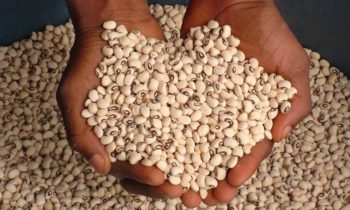
The United Nations Industrial Development Organisation (UNIDO) will begin a pilot export of Nigerian dried beans to the European Union in April.
UNIDO’s Chief Technical Adviser, National Quality Infrastructure Project, Shaukak Malik, disclosed this on Monday at the opening of a 3-day capacity building for sustainability of the project.
UNIDO also said it will officially write to the EU to inform it of the improved quality of dried Nigerian beans and that it is safe for consumption, if the pilot is successful.
The EU had banned importation of Nigeria’s dried beans in June 2015 on the ground that it contained a high level of pesticide considered dangerous to human health.
In June 2016, the ban was extended by three years by the EU because the presence of dichlorvos (pesticide) in dried beans imported from Nigeria and maximum residue levels of pesticides showed that compliance with food law requirement as regards pesticide residual could not be achieved in the short term.
Malik confirmed that the level of chemicals, pesticides and fertilisers used by Nigerian farmers have been brought down drastically as UNIDO had trained Nigerian farmers on good agricultural practices.
He added that UNIDO is developing 10 training centres in Nigeria; four in Abuja and six in Lagos State.
He also disclosed that the UN organisation is in collaboration with the National Universities Commission (NUC) to develop a curriculum on quality management.
He said that an Integrated Export Control Plan, which has been validated by both the Federal Ministry of Agriculture and Rural Development and the Federal Ministry of Trade and Investment and stressed the need for its enforcement, has been developed by a working group under zero reject of Nigerian goods.
Stephen Cross, an international accreditation expert, who also spoke at the event said the strongest challenge against trading of Nigerian goods and services are non-tariff trade barriers.
UNIDO asked the Nigerian government to approve the Nigerian National Quality Policy (NNQP) urgently as the policy is still awaiting approval from the Federal Executive Council (FEC).
According to the Chief Technical Adviser, product rejection or ban at EU countries and other parts of the world can be reduced with recognised NNQP, accreditation and certification bodies as meteorology institute.
Copyright Ships & Ports Ltd. Permission to use quotations from this article is granted subject to appropriate credit given to www.shipsandports.com.ng as the source.